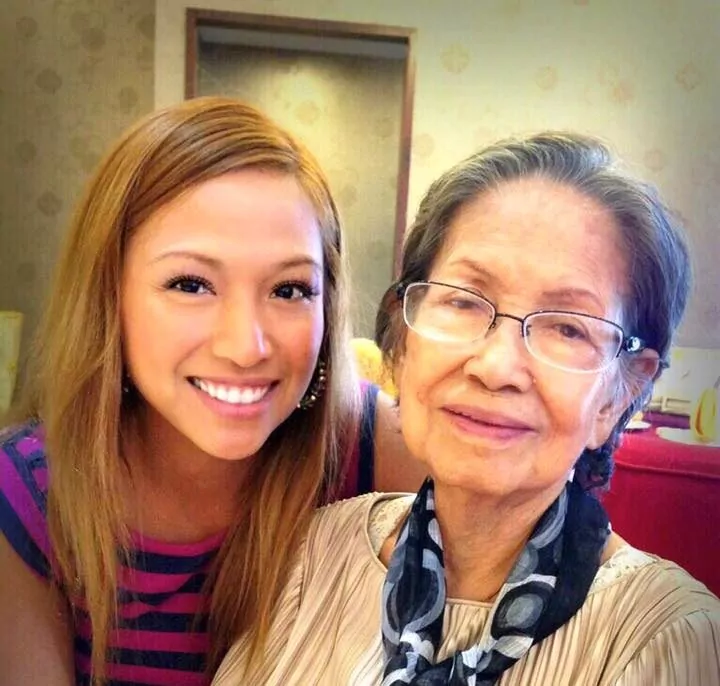Last Updated: April 22, 2024
Key Takeaways:
- Safety is the number one priority.
- Don’t ignore the warning signs that your loved one needs Assisted Living or Memory Care.
- Observe any changes in your Loved One’s health and physical conditions.
- Become familiar with the 10 Telling Signs it’s time for Assisted Living or Memory Care.
- Being prepared is safer and less stressful for everyone.
This is one of the most common questions we hear from families we’ve helped throughout the years. There are several factors to consider when determining the right time for Assisted Living. There might come a time when your parents or elderly loved ones will no longer be able to live independently by themselves at home. This is the reason why it is very important for us to observe any changes in their health and physical condition when visiting them.
We should be aware of general warning signs that will answer the question, “When is it Time for Assisted Living?” Most of the signs would be related to Activities of Daily Living (ADLs). Many states that have assisted living requirements that include assistance with everyday tasks, eating, bathing, dressing, toileting, transferring and medication assistance.
Here are ten warning signs to help you answer one of the most critical senior healthcare questions you’ll have to face:
10 Signs When You Need Assisted Living
1. Mobility Issues
Is Mom or Dad having trouble walking around the house, going up and down the stairs, or demonstrating any signs of decreased mobility? Are you worried about falls and fractures due to regular physical changes that can limit your loved one’s mobility?
If you’ve answered “yes” to any of these, then it’s time to assess your parents’ own assisted living or situation. These are some of the signs that can help you determine when it’s time for assisted living. If you intend to keep your loved one in their home, you must make certain home repairs and modifications to ensure that it remains safe for them to live in. For example, if your loved one is prone to falling or slipping, handrails may be necessary for entrances and the bathroom. You might also want to consider getting them a walker or a wheelchair. If they are having a hard time going up and down the stairs, it might be a good idea to move them to the bedroom downstairs, don’t you think?
It’s crucial to schedule visits routinely to ensure your elderly loved ones’ safety is always being prioritized. However, if you are unable to find a caregiver to assist them with walking and transferring, then it may be an excellent time to consider assisted living facilities.
2. Memory Problems
Does Mom or Dad tend to forget important events, doctor appointments, or even forget to take their medications? Do you notice any issues related to memory problems, like repeating the same questions and statements over and over, misplacing things, or leaving the stove on several times? Does your senior loved one wander away from home?
These signs will tell you that it’s an excellent time to start thinking about the next best assisted living facility or skilled nursing facility.
3. Needs Help with Personal Care or Hygiene
Keep an eye on the hygiene of your senior loved one. Are they wearing the same clothes every time when you come to visit? Does your aging parent go out without brushing his/her hair, wear dirty clothes, forget to shower, have bad breath or demonstrate other signs of neglecting personal hygiene?
For seniors with medical conditions, these tasks may be challenging to do on a daily basis. No matter what the cause is for their poor hygiene, chronic health conditions, whether physical or mental, it is another warning sign that they need some help with day-to-day activities of daily assisted living. At this point, Assisted Living would be a good option as it provides assistance to seniors who need help with personal care and hygiene.
4. Housekeeping Issues
Next time you visit your aging loved one, try to observe and look around the house. Is the house well maintained? Are the counters and floors dirty? Are there spoiled foods in the refrigerator? If you answer yes to any of these questions, chances are that your aging love one may need help with household chores.
If you are still able to help with their long-term care, medical care, everyday tasks, and household chores or pay someone to do so, your elderly loved one may still be able to stay longer at home. However, if you find that you can’t help them with long-term care or with day-to-day tasks and household chores, it may be a good time to consider assisted living.
5. Driving Safety Issues
Are you worried about your aging loved one’s driving abilities? Are there scratches or dents on the car or several traffic tickets? These driving safety issues may be a result of cognitive impairment and diminished motor capabilities due to aging. If you feel that your parent or aging relative can no longer drive safely, you have to find a way to get him or her to stop driving. It will also be an excellent time to schedule an appointment with the physician to help assess your parent or family member’s physical and mental condition.
Tip: This is usually one of the most difficult conversations you’ll ever have with your aging parents. Most seniors feel offended when you try to convince them to stop driving, but don’t feel bad because you’re doing the right thing by putting their safety first.
When you talk to your aging parents about this topic, be sure to focus on the positive side so they stay informed and don’t feel offended. Inform them that there are several other options, like transportation services for seniors in the assisted living community or you can drive them where they need to go. Most assisted living communities will usually provide transportation services to all their residents. Be sure to mention this to your elderly loved ones as this will be a good way to start the whole assisted living communities conversation.
6. Weight Loss
Has your mom or dad been losing weight? Is it a sudden weight loss? If yes, then it might be an indication that your elderly loved one is not eating correctly. This may be due to decreased appetite and loss of ability to do grocery shopping or to prepare and cook their own food. However, for some seniors, weight loss may be attributed to memory loss, which results in skipping meals or forgetting to eat. If this is a concern, you may want to ensure that regular meals are prepared for them. You can ask family members to take turns preparing their meals, or you can check available meal services in the area with an agency or community like Meals on the Wheels. With more recent cell phone technology, you can even order Uber Eats or Door Dash from your mobile phone app and have the food delivered to their home.
If you are not able to find a family, home care, or someone to help with meals, you might want to start considering independent and or assisted living community options nearby as most assisted living communities in the area provide daily meals and snacks for their senior residents. This will be another option to ensure that your elderly loved ones are eating healthy and nutritious meals every day.
7. Issues with Medication
Proper medication management is essential for seniors older adults who have medical conditions. When visiting your aging relative, do you notice any expired medicine bottles or unfilled prescriptions? If you do, this may be a sign that your aging loved one is no longer able to manage his or her own medications properly. Prescriptions are very serious and taking too much or too little can have serious health consequences. Most assisted living communities provide medication management. They are staffed long-term care, with dedicated and well-trained caregivers as well as nurses to ensure that the person’s medications are given at the proper time. If you can visit the person regularly to help with medicine management or hire a caregiver, then they might be able to still stay at home. However, if you cannot, it may be time for an assisted living facility.
8. Inability To Communicate
Does your aging loved one experience difficulties in communicating their feelings and emotions? Do you notice a change in your loved one’s behavior? If you have noticed any signs of confusion or aggression that seem out of place for your senior loved one, you may need to consult a physician. The physician can give you a recommendation if the community feels it’s still safe to live at home or if it’s time to move to an assisted living facility, community or memory care facility.
9. Isolation and Depression
Depression affects everyone, including seniors. However, the warning signs of senior depression can be different in older adults. More than half of younger and older adults suffer from this, which makes it harder to identify. A decrease in interest in things your aging relative once loved, moodiness, lack of appetite, fatigue, and other behavioral changes are some signs of decreasing mental health. Moving to an Independent Living or Assisted Living facility may be a good idea as your loved one can benefit from the medical care and increase their social interaction via daily activities provided by the assisted living facilities and the assisted living community.
10. Caregiver Stress
Are you the full-time caregiver of your aging parent? Do you do all the caregiving tasks and start to feel burnt out? Caregiving is a challenging task as it requires a lot of time and hard work. There should be no shame in admitting the stress of being a family caregiver, as it is not an easy task. Taking breaks regularly is very important as caregiving stress can have a negative effect on the caregiver’s health and well-being.
If you are not able to continue caring for your aging loved one due to the physical and emotional stress, you will have to look for assisted living communities and other long-term caregiving options. You might want to talk to your family about taking turns with the long-term caregiving or hiring an in-home care provider. Keep in mind, though, that having a 24-hour caregiver can be very costly versus the cost of moving to assisted living communities or residential care home. Be sure to check all available options, including costs for Assisted Living communities.
Need to Speak with a Care Advisor for Care Options or Questions about Senior Living, Assisted Living or Memory Care, Call 877.523.6523 x 1 or click here for answers.
How to Prepare When They Need Assisted Assisted Living
Talking to your aging parents about assisted living communities is probably one of the most challenging conversations you will ever have with your parents. Some seniors may not like to entertain the fact that someday assisted living care will be needed. What are the key questions and things that you should consider when talking about choosing assisted living or senior living communities, and how can you start the assisted or senior living and conversation with your aging parents?
1. Understand What Leaving Their Home Means
-
A loss of independence and diminished capabilities. Some can even view it as a sign of failure, mentally and physically.
-
Researchers say some aging parents may even go into a grieving process due to the loss of their home, independence, and just as important, their privacy
-
It is essential to be sensitive towards their feelings when you prepare for your conversation about moving
2. Preparing What to Say
-
Get your parents involved in the conversation: ask them open-ended questions, get their ideas, understand their worries
-
Express your concerns about their safety, health, being alone
-
Create brainstorming and interaction: “Mom (or Dad), can you do me a big favor? Can we visit this assisted living facility near the house? It might make your daily routine much easier and a lot safer.”
3. Family Decision
Holidays or family parties are a perfect time to discuss with other residents of the home, like setting and family, what’s best for Mom and Dad since everyone is together. It’s ideal to get other residents, siblings, and other family members involved, as taking care of the elderly family member is a family decision and responsibility.
-
Choose a designated point person (located closer to whomever has the most time available)
-
Address financial issues, Power of Attorney, etc.
-
Determine essential factors:
-
Location of how close you want your loved one to be
-
What are their Care Needs?
-
What is the budget for rent/care per month?
4. Time is Your Ally
-
Start the conversation early and don’t hold off. Too often families often wait until the last minute, making the entire process rushed and stressful. This in turn does not give them enough time to make the best decision possible for the person moving
-
Being under time pressure, you’re forced to make rash decisions and not thoroughly weigh all of your options.
Conclusion:
Remember, just like raising children, there is no “perfect way” or one-way to approach assisted living or memory care for your aging parents. However, if you prepare for it and give yourself enough time and financial resources, you can make finding the right assisted living facility or memory care facility a lot easier for everyone involved. The top priority is getting the best care options for your aging parent in need of care. The most important reminder is to let your parents know your desire for them to be independent, but their safety always comes first.
If you need help with Assisted Living options, click here or call our Expert Senior Care Advisors today at 877-523-6523.
Related Assisted Living Articles:
Catharine “Kate” is a Certified Administrator for Residential Care Facilities for the Elderly (RCFE) and an Expert Senior Care Advisor. Kate’s grandmother battled Alzheimer’s Disease and Kate personally understands what millions of families are going through. Kate and her team are very passionate in empowering Seniors and their families by providing them with the Best Available Senior Care Options based on Senior’s care needs, preferred location and family’s budget.





